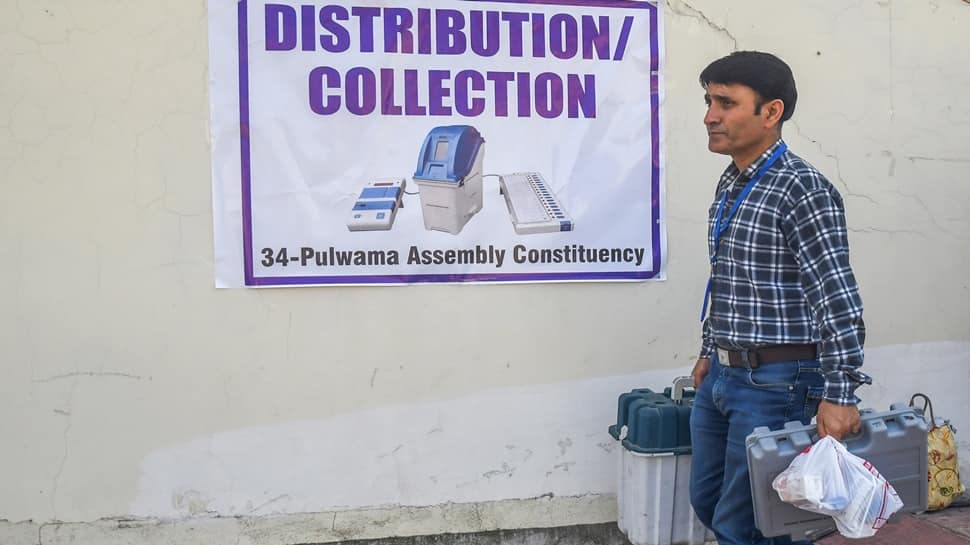 |
|
The recent Supreme Court dismissal of a Public Interest Litigation (PIL) seeking a return to ballot papers in Indian elections has reignited the debate surrounding the use of Electronic Voting Machines (EVMs). For years, the Congress party, particularly since the BJP's significant victory in the 2014 Lok Sabha elections, has consistently attributed its electoral setbacks to alleged EVM manipulation. This persistent claim, however, ignores the party's successes in various state elections held since 2014, using the same EVM technology. The incongruity highlights the need for a more nuanced and evidence-based approach to understanding electoral outcomes rather than resorting to convenient scapegoating.
The Supreme Court's decision, while rejecting the PIL, accurately pinpointed the inherent bias in such complaints. The observation that EVM tampering claims surface only after electoral defeat underscores the lack of serious intent behind many of these allegations. The court's mention of instances where both Chandrababu Naidu and Jagan Mohan Reddy cited EVM manipulation after their respective electoral losses further strengthens this point. The underlying issue isn't necessarily the technology itself but the lack of acceptance of electoral defeat and a tendency to deflect responsibility from internal party shortcomings or wider political factors.
The historical context of Indian elections is crucial in understanding the shift to EVMs. Prior to widespread EVM adoption, ballot papers were vulnerable to manipulation and malpractices such as rigging and intimidation. The rampant vote-buying, ballot-box stuffing, and other forms of electoral fraud were a significant feature of the past, hindering the integrity of the democratic process. The introduction of EVMs, while not entirely foolproof, offered a more secure and transparent system, minimizing opportunities for widespread manipulation that characterized previous elections. The argument to revert back to paper ballots is thus not only impractical but also risks a return to a more chaotic and less credible electoral process.
Beyond the specific debate about EVMs, the article points to a larger issue within Indian politics: the need for parties to engage in meaningful self-reflection and address fundamental problems rather than solely blaming external factors. Instead of focusing on alleged EVM irregularities, both the Congress and its allies, as well as the BJP, should prioritize addressing real public concerns, developing robust policies, and rebuilding trust with the electorate. This involves strengthening party organization, improving communication with voters, and demonstrating a clear commitment to tackling pressing issues such as unemployment, poverty, and inequality.
The Election Commission of India (ECI) also bears a responsibility in fostering greater public trust. The ECI must address allegations of EVM malfunctions promptly and transparently. When concerns are raised, thorough investigations should be conducted, and the findings should be communicated publicly to alleviate doubts and maintain the credibility of the electoral process. This commitment to transparency and accountability is crucial in maintaining faith in the electoral system. The response to the allegation of a near-fully charged EVM battery after polling concluded is a case in point; a timely and comprehensive explanation would have significantly mitigated any potential mistrust.
In conclusion, while the debate about EVMs will likely continue, the focus must shift from blaming technology to addressing more substantial political and governance matters. The Supreme Court's ruling serves as a crucial reminder that robust democratic processes require not only secure voting methods but also a responsible approach by political parties and an unwavering commitment to transparency and accountability by the ECI. Only through a holistic approach that includes responsible governance, clear communication, and effective electoral oversight can India's vibrant democracy truly flourish.
The continued focus on EVMs as a scapegoat undermines the larger issue of strengthening democratic institutions and processes. Instead of dwelling on unsubstantiated claims of manipulation, political parties should invest their energy in connecting with voters, addressing the concerns of the public, and building a broader consensus on national priorities. This renewed focus on substantive engagement with the electorate would be more fruitful and ultimately more effective in securing political mandates than blaming the technological tools employed in the election process itself.
Source: After SC Verdict, Time For Congress And Allies To Move Beyond EVM Elegy | Opinion
